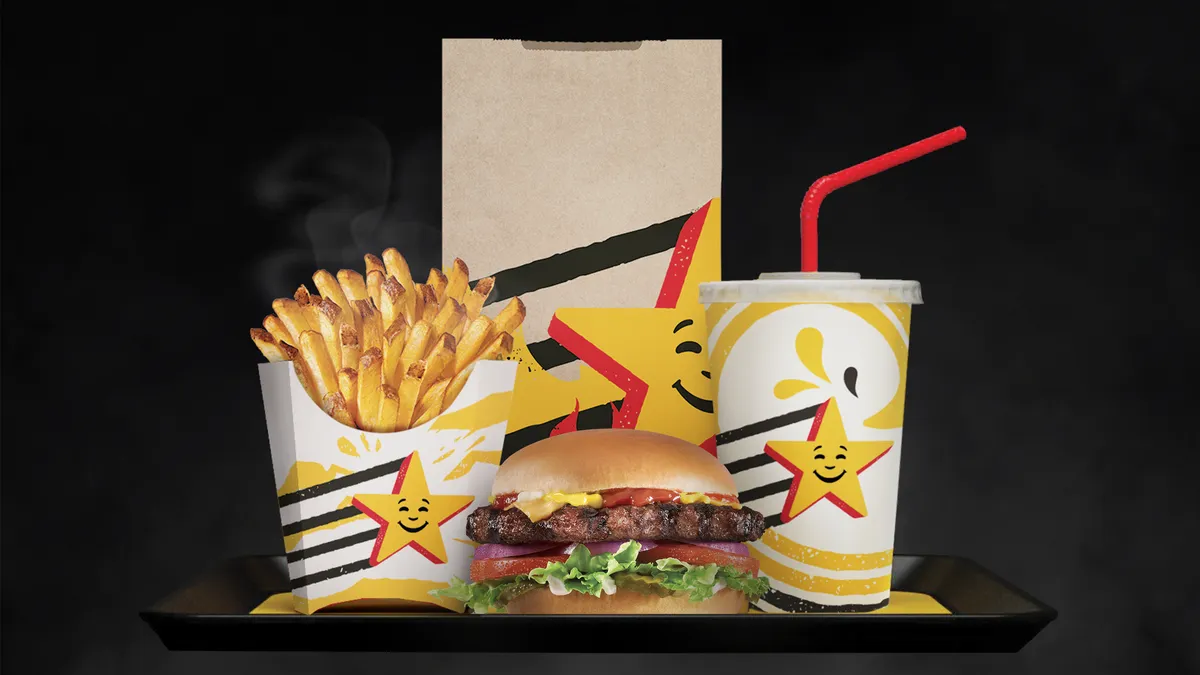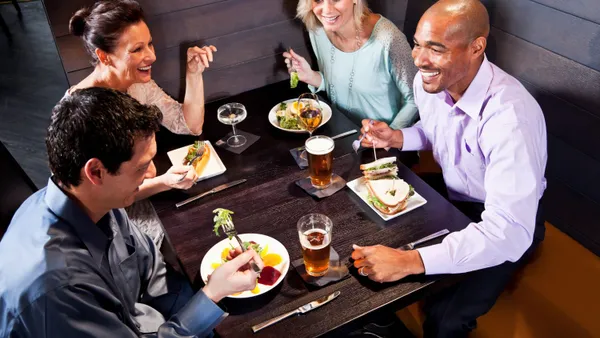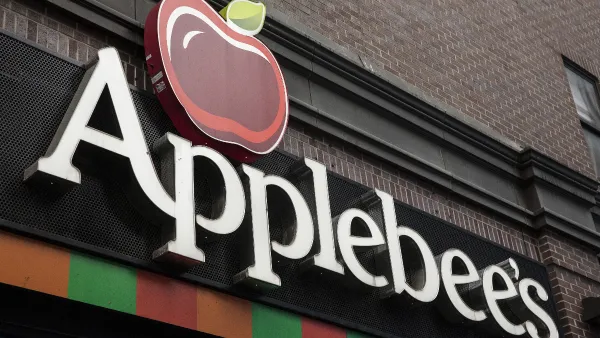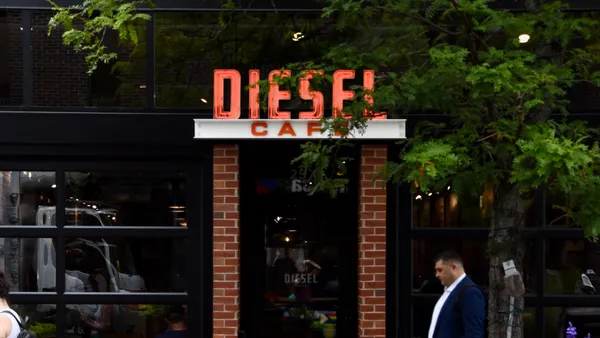Dive Brief:
- Summit Restaurant Holdings, a group of CKE franchisees that operated over 145 Hardee’s restaurants in eight states at its peak, filed for Chapter 11 bankruptcy protection in the U.S. Bankruptcy Court for the District of Colorado, Thursday, court records show.
- Summit Restaurants recently closed 39 stores and said it currently operated 108 in its bankruptcy filings. Summit is a part of Capstone Restaurants, which owns and operates about 226 Carl’s Jr. and Hardee’s restaurants, according to its website and court records.
- In a statement emailed to Restaurant Dive, CKE said its “goal is to maintain the maximum number of stores continuing to operate, backed by a capital structure that is sustainable and poised for long-term growth and success, and we are working with all parties to achieve that goal.”
Dive Insight:
In a court declaration of support for Summit’s filings, the company’s financial adviser, Daniel Dooley CEO of distressed business consulting practice MorrisAnderson, laid out the factors driving Summit’s bankruptcy.
“Business also suffered significantly from loss of foot traffic, resulting in declining revenue without proportionate decreases in rental obligations, debt service, and other liabilities,” Summit said in its court filings. Mirroring other QSR franchisees to file for Chapter 11 this year, Dooley said Summit’s cash flow suffered as a result of high shipping, food and labor costs, and a decrease in the labor supply.
Dooley said many of Summit’s restaurants underperformed and were unable to grow annual volumes, with some sustaining long periods of unprofitability. Summits stores are spread across Alabama, Florida, Georgia, South Carolina, Kansas, Missouri, Wyoming and Montana. According to Dooley’s declaration, Summit had $22 million secured and $6 million in unsecured debt when it filed for Chapter 11.
Summit joins a number of other QSR operators that have filed for bankruptcy in 2023. Increased costs and lowered sales have resulted in erosion of margins at many QSR franchisees.
In an interview for a previous article, Carty Davis, partner at C Squared Advisory Group, an investment bank focused on franchises, said that lowered profit margins made it more difficult for franchisees to borrow. As margins erode, franchisees may fail to comply with aspects of lending covenants such as EBITDA targets, liquidity targets, lease adjusted leverage rations, meaning they lose access to credit.
While RBI has suffered the worst of the franchisee troubles so far this year, with two Burger King and one Popeyes franchisee filing for bankruptcy, the bankruptcy of a major Hardee’s franchisee indicates challenges may be widespread.
CKE has been working to improve sales and customer retention over the last year, launching a loyalty program in March 2022 to compete more effectively with other QSRs. The company also named former Papa Johns COO Max Wetzel as CEO earlier this year. In an effort to control labor costs, improve speed of service and boost customer satisfaction, CKE partnered with three drive-thru AI firms in the last year, Valyant, OpenCity and Presto, and is testing their tools across a number of restaurants. On Thursday, those firms announced their tools were available to CKE franchisees.
“Hardee’s is focused on its core customer and the products they crave, as well as investing in the physical infrastructure of restaurants, to grow traffic and sales,” CKE said in a statement.














